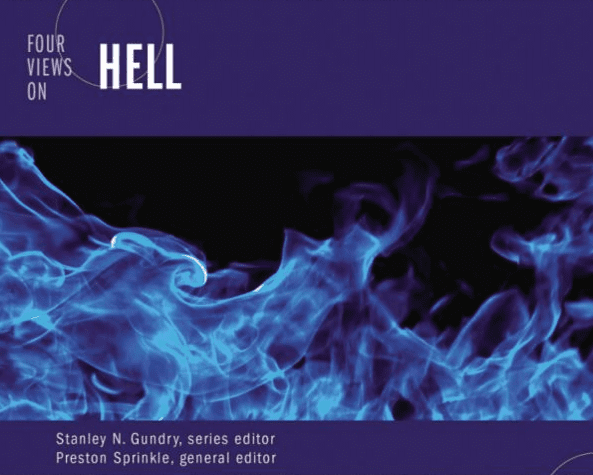 In a previous post we looked at what Jesus taught about hell. The traditionalists contend the rest of the authors of the New Testament tow the line alongside Jesus. Today we want to sketch what Edward Fudge, in Hell: A Final Word, summarizes about James, Acts, Peter, Paul, Hebrews, and 2 Peter-Jude say about hell.
In a previous post we looked at what Jesus taught about hell. The traditionalists contend the rest of the authors of the New Testament tow the line alongside Jesus. Today we want to sketch what Edward Fudge, in Hell: A Final Word, summarizes about James, Acts, Peter, Paul, Hebrews, and 2 Peter-Jude say about hell.
James speaks of the end of the wicked five times: death (1:15), destruction (4:12), consumed (5:3), slaughter (5:5), death (5:19).
The Book of Acts does not motivate by fear. Four refs to final judgment, and they are stated by Peter and Paul, and Fudge turns to them.
Peter: the only reference to the kind of final judgment in the preaching of Acts, from the lips of Peter, is destruction (3:22-23). Paul’s preaching: Acts 17 we see from Paul that God will judge the whole world, his judgment will be just, Jesus Christ is the judge, God raised him from the dead, and in Acts 24 Paul mentions “future judgement.” Not a word on the nature of that final judgment.
What about Paul’s own writings? Paul talks about “hell” more than anyone, though he doesn’t use the word “hell.” Instead, he says the wicked will not inherit the kingdom (1 Cor 6:9-10); they will perish (Rom 2:12); they are anathema (1 Cor 16:22), they will be destroyed (Rom 2:12; 1 Cor 3:17) — sudden and everlasting (2 Thess 1:9). … it is marked by distress, fury, tribulation, and wrath. “It is strange beyond understanding how anyone can read these words… and explain them to mean anything other than total extinction, unending cessation, and complete annihilation” (128). These words are countered by the opposite: eternal life. Paul teaches, Fudge argues, endless death.
Hebrews warns the apostate of worse than physical death (2:2-3) — of destruction (10:39), one created by a raging consuming fire (10:27-31; 12:29) — torments, purifies or consumes?
2 Peter-Jude: swift destruction and condemnation (2 P 2:1, 3), like those of Sodom [above image] (2:6); Jude 7 says Sodom illustrates “eternal fire.” They will experience blackest darkness, total darkness (2 Pe 2:17; Jude 13). The Flood — destruction again (2 P 2:5-7).
John: John’s Gospel speaks of perish and destruction and death (3:36; 1 John 5:16-17 too).
Next post… the Lake of Fire.
If the rest of the NT followed Jesus, then the emphasis is destruction. The evidence for endless torment is not evident to Edward Fudge. What do you think? Any evidence for endless torment?















